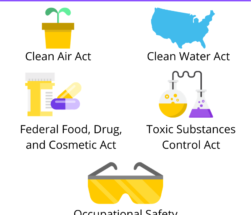As technology continues to shape the corporate landscape, companies in the tech industry must not only focus on innovation but also comply with antitrust laws. Antitrust compliance is a crucial aspect of doing business in the corporate world, aiming to promote fair competition, protect consumers, and prevent the abuse of market power. In this article, we will delve into the importance of antitrust compliance for tech companies, key considerations, and effective strategies to ensure compliance.
Understanding Antitrust Laws
Antitrust laws, also known as competition laws, are regulations enacted by governments to prevent anti-competitive practices and ensure fair competition in the marketplace. These laws vary across jurisdictions but generally target activities such as price fixing, monopolization, bid rigging, and collusion. For tech companies, compliance with antitrust laws is essential to avoid costly legal consequences and maintain a positive reputation.
The Importance of Antitrust Compliance for Tech Companies
As the tech industry continues to boom, scrutiny from regulatory authorities has intensified. Tech giants such as Google, Microsoft, and Apple have faced legal battles related to antitrust violations. Failure to comply with antitrust laws can lead to hefty fines, legal battles, and even breakups of companies, as seen in recent high-profile cases.
Moreover, non-compliance with antitrust laws can have severe reputational implications. Consumers increasingly value companies that demonstrate ethical behavior and promote fair competition. A company that engages in anti-competitive practices may face public backlash, loss of trust, and a long-lasting negative impact on its brand image.
Key Considerations for Antitrust Compliance
To ensure antitrust compliance, tech companies must regularly evaluate their business practices and assess potential risks. Here are some key considerations to keep in mind:
1. Market Share and Monopoly Power
Tech companies with a significant market share must pay close attention to their practices to avoid accusations of monopolistic behavior. Engaging in exclusionary tactics, predatory pricing, or acquiring potential competitors to maintain market dominance can be flagged as antitrust violations.
2. Collaborations and Partnerships
Tech companies often engage in collaborations and partnerships to enhance their product offerings or expand into new markets. While these collaborations can bring numerous benefits, they should be carefully structured to avoid potential antitrust violations. Agreements that restrict competition, allocate customers or markets, or fix prices can all raise red flags.
3. Pricing and Advertising
Price-fixing and collusion are serious antitrust violations. Tech companies must set their prices independently and compete fairly in the market. Additionally, false or misleading advertising can also raise legal concerns, as it can harm fair competition and mislead consumers.
4. Data and Privacy Practices
In the era of big data, tech companies must handle consumer data responsibly. Any practices that exploit user data to gain a competitive advantage can be considered anticompetitive. Compliance with data protection and privacy regulations is vital to avoid antitrust concerns.
Strategies for Effective Antitrust Compliance
Ensuring antitrust compliance requires proactive measures and a comprehensive compliance program. Here are some strategies that tech companies can implement:
1. Stay Informed and Educated
Keep up to date with changes in antitrust laws and regulations. Regularly educate employees about antitrust compliance, recognizing potential red flags, and reporting mechanisms. Conduct training sessions to foster a culture of compliance within the organization.
2. Conduct Internal Audits and Risk Assessments
Regularly assess your business practices to identify potential antitrust risks. Conduct internal audits to review contracts, collaborations, and pricing strategies. Identify areas where compliance can be strengthened and develop action plans accordingly.
3. Develop Antitrust Guidelines and Policies
Create comprehensive antitrust guidelines and policies that outline acceptable behavior and practices. Clearly communicate these policies to employees, partners, and stakeholders. Such guidelines can help prevent inadvertent violations and support a culture of compliance.
4. Seek Legal Counsel
Consult with legal experts specializing in antitrust laws to ensure compliance. Experienced counsel can provide guidance on complex antitrust issues, review contracts, and help navigate potential risks.
5. Monitor and Investigate Complaints
Establish a mechanism to receive and investigate complaints related to antitrust concerns. Promptly address any reported issues and take appropriate corrective measures. Encourage employees and partners to report potential violations without fear of retaliation.
6. Regularly Review and Adapt
Antitrust laws and regulations evolve over time. Regularly review your compliance program to ensure its effectiveness and relevance. Monitor legal developments, precedents, and enforcement trends to adapt your compliance strategy accordingly.
Conclusion
Antitrust compliance is critical for tech companies to navigate the corporate world successfully. By understanding antitrust laws, considering key compliance factors, and implementing effective strategies, tech companies can promote fair competition, protect their consumers, and safeguard their reputation. Embracing a culture of compliance and ethical behavior will not only ensure legal adherence but also contribute to sustainable growth and trust in the tech industry.








